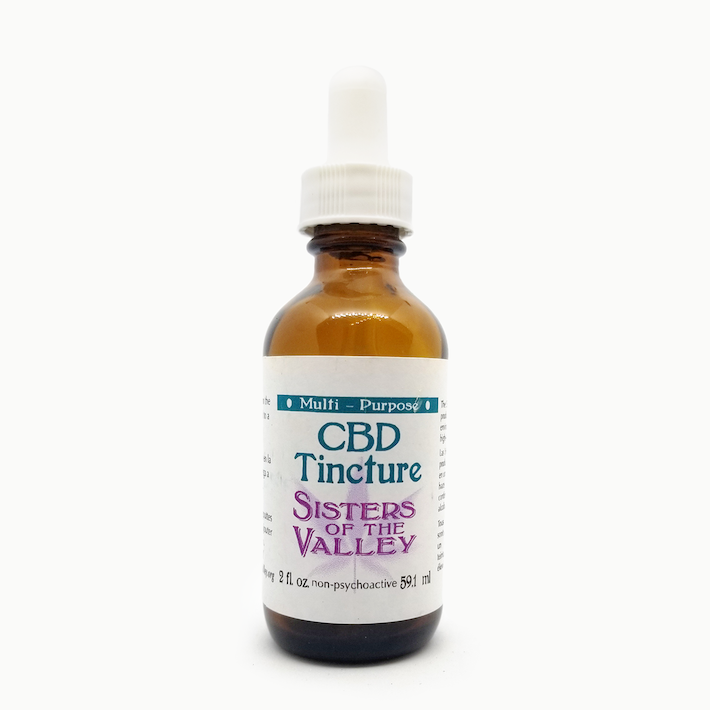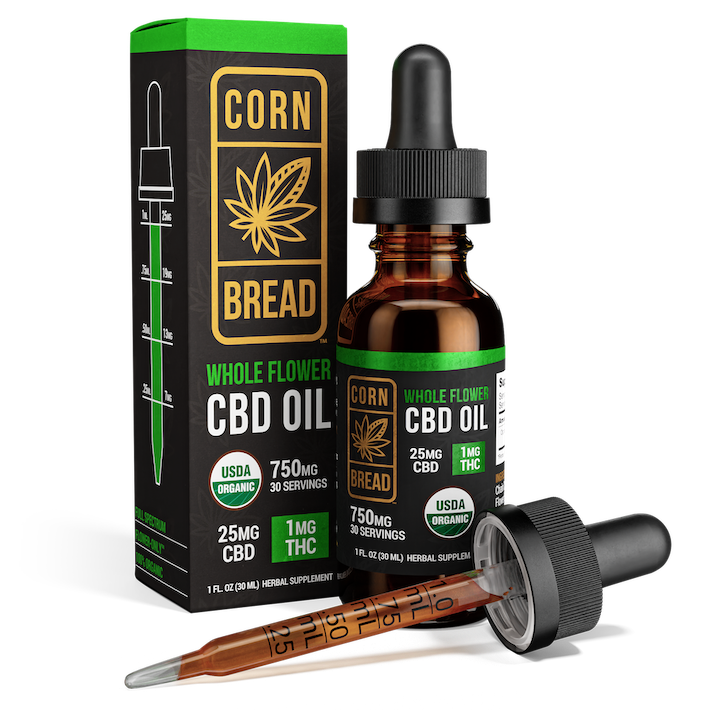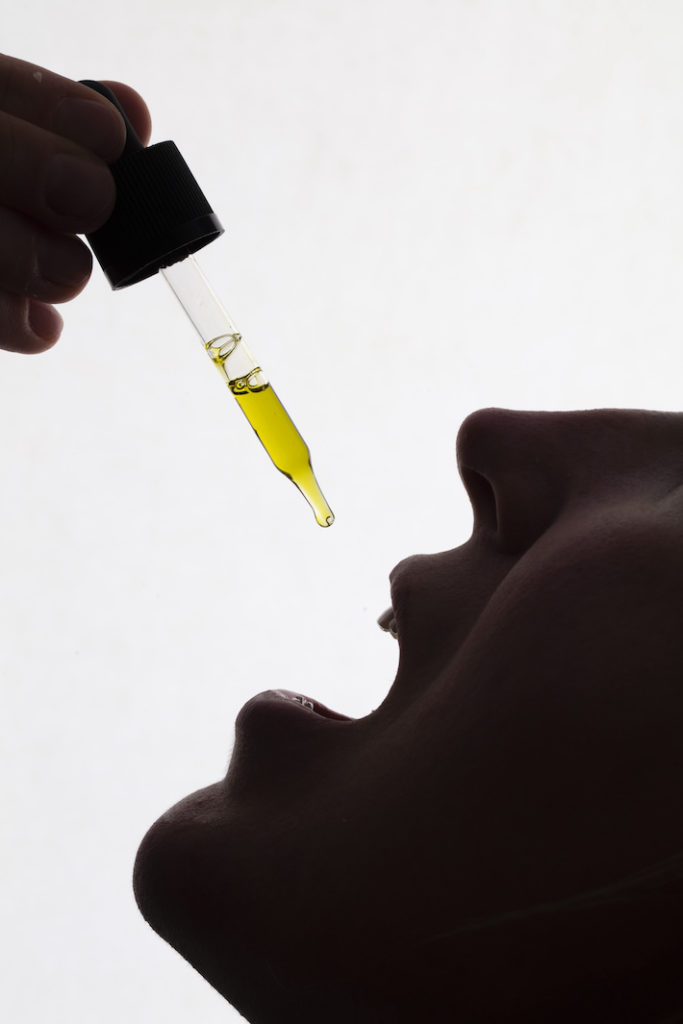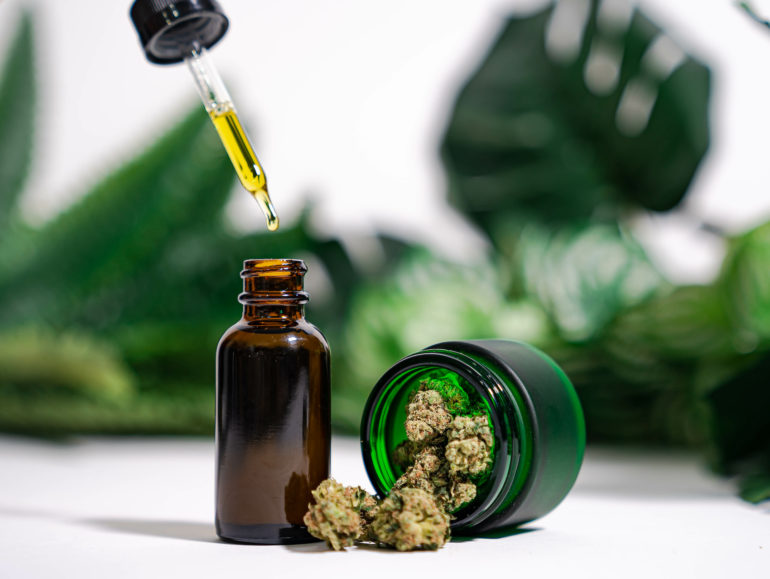CBD tinctures and CBD oils are two different products: while one is made with an alcohol base, the other is made with an oil base. However, despite the clear differences, these two CBD products are very often confused with one another, creating less-than-ideal experiences.
As two products that, admittedly, look quite similar, it’s understandable to get CBD tinctures and CBD oils confused. So, let’s compare the two. What are the main differences between these products, and why would you turn to one over the other?
What Are the Main Differences Between a CBD Tincture and CBD Oil?
Even though many people use these terms interchangeably, CBD oils and CBD tinctures are not the same. In fact, they’re different in more ways than someone might think.
Ingredients
The most significant difference between CBD oils and tinctures is the ingredients used to make the products.
CBD oils are simple products crafted with just CBD extract and a carrier oil, such as MCT or hemp seed oil. They may also have certain additives or terpenes to make the flavors more appealing, but this does depend on the brand. (Finding unflavored, pure CBD oils is easy.)
On the flip side, CBD tinctures are not made with oils. Instead, they are actually alcohol-based. To make a CBD tincture, the hemp flowers are essentially soaked in alcohol to essentially destroy plant materials while isolating compounds like CBD. From there, the tincture is purified of any remaining alcohol, leaving behind a liquid CBD product ready for consumption.

Even though it’s quite clear that CBD oils are made with oil and CBD tinctures are made with alcohol, many companies will incorrectly label their products, marking tinctures as oils or oils as tinctures.
We turned to Sister Kate, the founder of the CBD company Sisters of the Valley, and asked about why it’s so common for these products to be mislabeled and, subsequently, mixed up.
“It is ignorance, pure ignorance,” she explains. “But here’s what’s worse. For a long time, whenever I would see it, I would call it out… They either ignore me or double down on the fact that it is a tincture, because it comes in a bottle with a dropper.”
Though undoubtedly frustrating, it’s always worth double-checking the label and then the ingredients of your product to guarantee it’s what you think it is.
If you notice that there’s oil in the ingredient list, then you’re likely looking at a CBD oil, not a tincture. However, if the product doesn’t clarify what’s inside, that’s a huge red flag to stay away from the product altogether.
RELATED: How to Avoid Ineffective CBD Products
Absorption and Potency
Interestingly enough, there’s also a big difference in the absorption rates and potency of CBD tinctures versus CBD oils.
Because of the way that CBD tinctures are made, they tend to have higher bioavailability than your average CBD oil. This means that the product quickly absorbs into the bloodstream, working throughout the body with increased efficacy. You may find that you experience the results of your CBD tincture quicker than your CBD oil, and that boils down to how rapidly the cannabinoids are able to absorb.
However, you can find CBD oils that are made with increased bioavailability thanks to processes like nanoemulsion. These processes will help make the cannabinoids themselves more bioavailable, helping the product work quicker and feel more potent. But, this isn’t standard for CBD oils.
RELATED: Does Higher Bioavailability Really Matter?
The increased bioavailability and absorption rate that CBD tinctures have allows them to be easily mixed with beverages or foods. You can add a few drops of your tincture into your smoothie, soup, salad dressing, or right into your pasta sauce and find that it mixes better with the product than a CBD oil would.
Because of its higher bioavailability, it also allows the potency of a CBD tincture to be a bit more significant than a CBD oil’s potency.
Of course, you can always buy a CBD oil that has a higher milligram amount than a similar CBD tincture if you want your oil to be stronger. But, if you compare a tincture and an oil with the same amount of CBD, it’s likely that you’d find the tincture produces slightly stronger results in the mind and body. This does depend on the person, but this tends to be a common occurrence.
Flavors
In general, because of the alcohol used to make the product, CBD tinctures are notoriously bitter. Many people aren’t huge fans of the taste of CBD tinctures due to the odd bitter notes, so they tend to hide the tincture within foods or drinks. This can help disguise the flavors and make the experience more appetizing. You can find flavored tinctures, but they still tend to have that bitter aftertaste.
CBD oils, on the other hand, are known for being much more appealing. These products have gentle oil bases that don’t have any bitter flavors; instead, they tend to be much more earthy. However, the oils also take on other flavors beautifully, so when mixed with certain terpenes or flavonoids, your CBD oil can actually end up being very tasty.
Availability and Price
Thankfully, both CBD oil and CBD tinctures are federally legal in the United States as long as they are hemp-derived and don’t contain more than 0.3% THC by dry weight. Because of this, they are easy to find both in person and online, as most CBD retailers will sell at least one type of these products. But, again, it may be a bit more common to come across oils than tinctures.
RELATED: The Best Online CBD Stores to Shop From
Even though CBD oils are slightly easier to come by, they are going to be priced a bit higher than your average CBD tincture. This is due to a few different reasons, primarily covering the cost of the oils used to curate the product itself. CBD oils may also have additional flavors to make the experience more palatable, and this can add to an increased price, as well.
Defining CBD Tinctures
So, we’ve established the differences between CBD tinctures and CBD oils, but how do you actually define these products?
If you’re going in to ask about a CBD tincture, this is a CBD product that’s made with an alcohol base. These alcohol-based extracts require extra filtration and purification in order to rid the product of the alcohol itself, often leaving behind a noticeably bitter flavor.
When looking at a CBD tincture, it’s important to read the ingredients within the products to ensure that it is, in fact, a tincture. If your tincture has an oil base of any kind, this is a mislabeled product, plain and simple.
Defining CBD Oils
Thus, CBD oils are defined as oil-based extracts. These CBD extracts are curated using extracted cannabidiol and a carrier oil. Common carrier oils for CBD are MCT oil, hempseed oil, avocado oil, or even olive oil, but this simply depends on the manufacturer’s preference. Thankfully, if you have a preference regarding oil, you can find a CBD product with practically any carrier oil imaginable. Or, you can craft your own using your go-to oil and some CBD distillate.

CBD oils are super common products that you can find in various strengths, sizes, and flavors. These products can be a little on the pricey side depending on how much CBD is inside, but many people find the quick, potent results worth it.
RELATED: How Is CBD Oil Made?
So, Which Is Better: CBD Tinctures or CBD Oils?
It’s no secret that both CBD tinctures and CBD oils can be wonderful product choices for consumers. And, these products are simply pretty different from one another. Because of that, we cannot say that one is necessarily better than the other.
Sister Kate, when asked about the efficacy of tinctures over oils, said this: “If the household is dealing with seizuring pets or people, then [a] tincture becomes super important. Squirting the tincture on a seizuring pet or person’s tongue will immediately interrupt the seizure.”
She also mentioned that those who suffer from anxiety or panic attacks may also benefit from tinctures because of the fast-acting, grounding effects: “I always say that the oil drops are more like pills, where you have to wait ten to twenty minutes for an effect, where the tincture is immediate. The alcohol in tincture acts like a bitter herb and bitter herbs are meant to be bitter, to cause the shudder, to cause the immediate absorption.”
Board-certified adult geriatric nurse practitioner Eloise Theisen also weighed in and shared that, “Tinctures are a great way to start low and slow and find the right dose for your condition quickly. For those who are new to CBD, they may be reluctant to try a gummy or capsule because of the dose. With a tincture, you can take just a few drops and determine whether that amount was sufficient for the symptoms you’re trying to treat. Tinctures are great for a new, inexperienced user to explore their dose and frequency. And for many older adults, they are the preferred method.”
Of course, you have to consider your own needs and preferences in a CBD product. When you establish those, it becomes easier to see what kind of product aligns the most for your health and wellness.
Vice President of CV Sciences and maker of PlusCBD, Jesse Karagianes says, “CBD oils act as carriers for the hemp extracts containing the cannabinoids, terpenes, and fatty acids found in the hemp plant. In general, they are generally easier to digest and can readily be used as a topical. They are also easy to mix with other products. CBD oils typically have minimal ingredients and tend to be more potent than tinctures.”
He goes on to say, “The alcohol-based products use high-proof alcohol to steep the plant material. It is then strained, often with additional ingredients to mask the harsh flavor. People who are sensitive to the carrier oil in CBD oil products may prefer alcohol tinctures.”
That said, keep in mind factors like ingredient allergies or sensitivities to alcohol, as well. This can directly affect which product is going to work best for you.
RELATED: Guide to Buying the Best CBD Products for You
Safely Dosing Your CBD Oil or Tincture

Even though CBD is a non-psychoactive cannabinoid, proper dosing is key to having the best experiences possible. As a good general rule of thumb, it’s good to start low and go slow.
This means that you should begin with a low amount of CBD, around 20 mg or so. This will give you a good indication of how the cannabinoid reacts in the body.
If this isn’t strong enough, you can try increasing your dosage slowly, by about 5-10 mg at a time until you find a potency that works best for you.
Discovering the Perfect CBD Product For You
Finding the right CBD product for you isn’t always easy. With so many different products to choose from — with some of them seeming so similar to another — it can be tough to figure out which choice is best for your mind and body.
References (3)
- Abernethy, A. (2019, July 25). Hemp production and the 2018 farm bill. U.S. Food And Drug Administration. https://www.fda.gov/news-events/congressional-testimony/hemp-production-and-2018-farm-bill-07252019
- Lucas, C., Galettis, P., & Schneider, J. (2018). The pharmacokinetics and the pharmacodynamics of cannabinoids. British Journal of Clinical Pharmacology, 84(11), 2477–2482. https://doi.org/10.1111/bcp.13710
- Nakano, Y., Tajima, M., Sugiyama, E., Sato, V. H., & Sato, H. (2019). Development of a Novel Nanoemulsion Formulation to Improve Intestinal Absorption of Cannabidiol. Medical Cannabis and Cannabinoids, 2(1), 35–42. https://doi.org/10.1159/000497361
